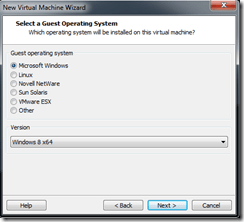Microsoft has released a free e-book entitled “Introducing Windows Server 2012”.
The Introduction:
“…Windows Server 2012 is probably the most significant release of the Windows Server platform ever. With an innovative new user interface, powerful new management tools, enhanced Windows PowerShell support, and hundreds of new features in the areas of networking, storage, and virtualization, Windows Server 2012 can help IT deliver more while reducing costs. Windows Server 2012 also was designed for the cloud from the ground up and provides a foundation for building both public and private cloud solutions to enable businesses to take advantage of the many benefits of cloud computing.
This book represents a “first look” based on the public beta release of Windows
Server 2012 and is intended to help IT professionals familiarize themselves with
the capabilities of the new platform. Although certain features may change
between now and RTM, much of the basic functionality likely will remain as
described here, meaning that most of what you learn from reading this book will
continue to benefit you as you begin to evaluate and deploy Windows Server
2012 in your own environment…”
Just click the picture to download the book




